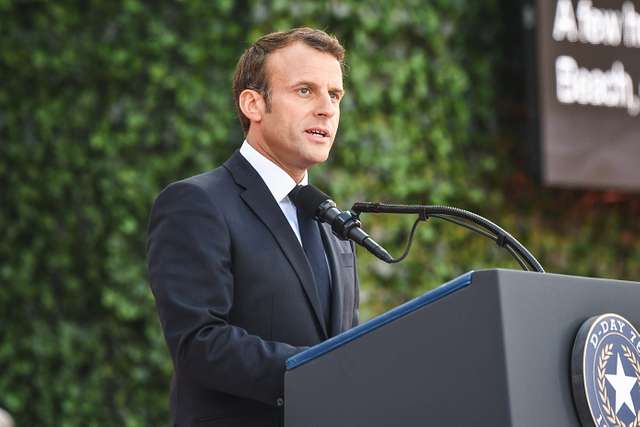
The Australian submarine contract was integral to France sustaining its defence sovereignty beyond Europe. Now the French feel betrayed by the contract’s cancellation and how badly it was mishandled by the Australians.
It was not just the cancellation of the submarine contract that infuriated the French. It was an act that struck at the heart of France’s defence personality and posture as developed even before the presidency of General Charles De Gaulle, but emboldened by him in the Cold War, as demonstrated by France’s withdrawal from the integrated military command of NATO in 1966 and its determination to develop and maintain an autonomous nuclear deterrent.
Its central attribute is defence sovereignty meaning that France should not rely on external sources to sustain an independent defence capability. In particular it should be independent of the United States, The Australian submarine contract was integral to sustaining the viability of France’s stance on defence sovereignty and its role beyond Europe.
In order to sustain this stance France’s force structure and materiel procurement was commanded to be locally produced and financed largely from within its own military/industrial sector. This is a really big business and much concentrated on exports.
French arms trade was given a free hand as export controls were concentrated in an efficient and rigorous bureaucracy controlled from within the presidency, from where Parliament and the legislature are largely excluded from providing supervision.
Consequently there were issues among its European partners over the ethics of sizeable contracts with the likes of Saudi Arabia from where arms supplies were fed into civil wars such as in Yemen with destructive and dehumanising consequences.
Other European partners, like Germany, were often uneasy about that but were usually brought around in the interests European unity and self-sufficiency. Some limited agreements on export controls have been concluded but these work on the default principle — exports are free to go unless objected to.
These measures have not constrained French ethical concerns unduly. Nonetheless if there were to be more joint defence projects in Europe export controls would need to be strengthened to gain wider political acceptance which will require some modification of France’s approach to its arms trade.
Another point is that the intensity of these arms dealings is such that they have given rise to scandals and corrupt practices, reaching the very heights and surfacing visibly from time to time. But the trade rolls on. Australia’s justifies its own arms trade as being in the national interest and provides production with the required economies of scale — like with the French.
While maintaining self-sufficiency in armaments France has continued to be strongly involved in the countries and territories of its former empire, particularly in west and central Africa with more successful outcomes there than the US has had in its third world operations.
This interest in external involvements, political, economic and military, has particular symbolic attributes in the Indo-Pacific area where France still has semi-independent island colonies and influence which brings two major aspects of the submarine contract together.
First, the contract being of some $60 to $99 billion in value was to be a major contribution to sustaining France’s self-sufficient military industries (its sovereign defence policy); and secondly with the submarines and its own visiting naval forces, it would provide fresh strategic access for France to security operations In the Pacific along with Australia — and a role in monitoring China, especially in maritime affairs.
In one blow France felt betrayed on both counts by the Australian decision and the discourteous (to say the least) manner in which is was handled or rather mishandled diplomatically. The question France had to ask itself is: when did Australia decide to cut the contract adrift and was this done in collusion with the US which would have repercussions for US interests in Europe.
As Australia’s contract dealings became more protracted, did this reflect Australian concerns about the conventional propulsion of the submarines given that the longer delivery time stretched out into the 2030s and beyond no government would be satisfied with such a limited capability.
The French tried to tease out Australian thinking on this which became complicated when the political implications of the French nuclear propulsion system became evident, requiring as it would an independent nuclear processing capacity on-shore in Australia. (The US reactor by comparison is, we understand, relatively trouble free and does not require refuelling over its lifetime.) To that stage the French could not get any indication about Australia’s longer term thinking, other than deceptive reassurances that all was well with the contract. Then the door was shut.
It will be some time before the French will be forgiving, believing as they do that both the UK and the US were well in on the act longer than admitted.
Britain for its part has its task in Europe cut out for itself with French disdain for Britain’s handling of Brexit and its clear breaches of international comity not to mention law over the Northern Ireland Protocol.
Regarding the US, the value of its reassurances have counted for little though presumably President Joe Biden will have something to offer the French well beyond what Australia could do to offset its poor diplomacy.
Australia itself, while trumpeting a new (old) strategic era in conjunction with Britain and the US in the Pacific, to “contain” China, may find that it is more shackled to American security than ever before and that notions of Australian “sovereign defence” have moved well beyond its reach possibly for all time.
The French meanwhile will be building on solidarity objectives with other Europeans to enhance their force structures and independent capabilities in their own theatre, less dependent on the US or with Britain having excluded itself from that circle.
NATO from now on will count for less, to the chagrin of the Baltic states. Whether Australia will get the free trade agreement it seeks from the European Union or will regain the access to Europe it had prior to Brexit remains to be seen.
With President Emmanuel Macron and France likely to be the dominant influence in Europe for the foreseeable future the indications would seem somewhat negative. Did the Australian government think deeply about these things before it pulled a swifty on the French?




